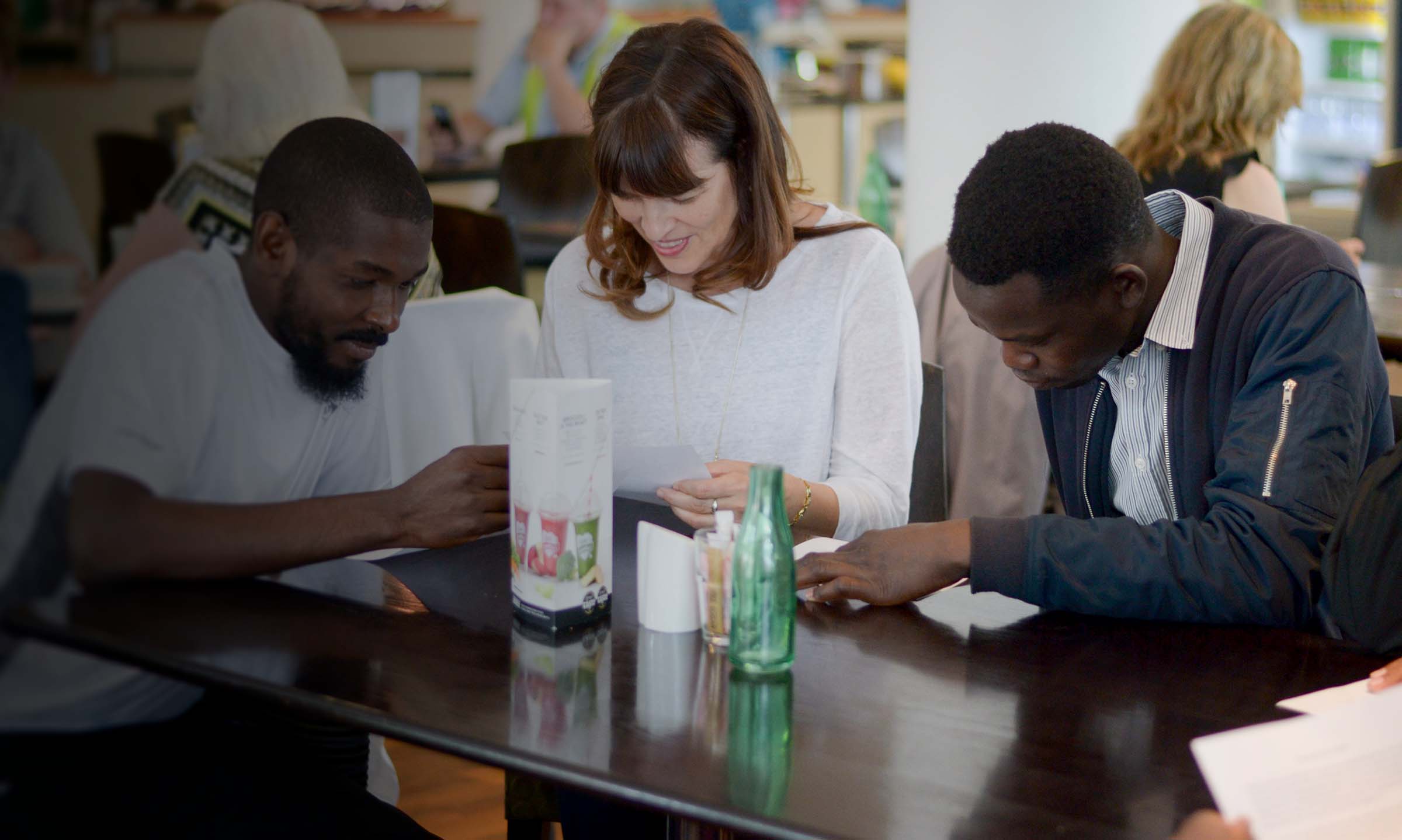Matt Robinson is the ‘Fresh Start’ Project Coordinator - an initiative run by Together for Change (TfC), supporting churches and other organisations in Coventry to offer a warm welcome and sense of companionship for refugees, asylum seekers and migrants, as they begin their new lives here. Benefact Trust’s annual grant to the Diocese of Coventry and Warwickshire helps fund TfC’s work, including its outreach to new communities and support to vulnerable families through its Family Link Workers. In this blog, Matt offers his top tips for welcoming new communities.
I've been teaching English for Speakers of Other Languages (ESOL) for a few years, and a number of learners have said the same thing: "The professional support we receive here is brilliant, but it is hard for us to make friends with people who are not from our country, as we lack confidence in our English." This can make them feel like "outsiders".
Fresh Start hosts regular social initiatives which bring people from a range of different backgrounds together, including English Conversation Cafes, football sessions, a choir, and international food evenings, where people bring a dish from their own culture to a large ‘bring and share’ meal.
Through these initiatives, we have developed relationships with hundreds of recently arrived people in our city, helping them to develop confidence in their English so they feel more empowered, and supporting them through different challenges that may arise, including their asylum cases.
Here are my tips for churches looking to reach out to these newly arrived communities:
- Liaise with your local refugee support centre - the Coventry Refugee and Migrant Centre is a key partner for us, and it was they who first developed the idea of grassroots community support groups offering spaces which bring people together. Speak to them, and map out what the existing provision is. I can almost guarantee that "more conversational English opportunities" and "more chances to play football" will be something that people are looking for!
- Use full sentences when speaking - there is a temptation to "dumb down" your English, but I would always advise speaking slowly in full sentences, with an emphasis on the key points; for example: "what did you eat for dinner last night?" rather than "what eat dinner last night?"
- Ensure that you let people know you can understand them - many new arrivals to this country lack confidence in their English, and fear that they will not be understood. Perhaps the most common phrase I hear is: "I'm sorry my English is no good". By nodding regularly, saying "I understand", or even repeating back what you've been told, you will really encourage people to keep speaking.
- Use pictures / videos regularly - this could be of nice places in the UK, which then encourages people to show pictures from their country. Football highlights are always good, and perhaps the greatest hidden gem that we've got is "Mr Bean" - he seems to have been televised in just about every country on earth! Games like "Jenga" are also great as well - they require little conversation, but are a good opportunity to have fun together.
- Learn some key phrases in their language - I have picked up a few key phrases in Arabic, and I can't stress enough how much this means to people. At the end of my Conversation Cafes, I'll always have a "your turn to teach" slot, in which I ask my group to teach me a key phrase in their language, e.g. "it's raining outside" (a very useful phrase here in the UK...). This mutual respect and desire to learn means such a lot to newly-arrived groups, and has certainly won me many friends - as well as giving them an opportunity to have a good laugh at my terrible pronunciation!
- Keep calm and keep smiling! There will inevitably be misunderstandings, and you may even accidentally cause offence (I've lost track of the amount of times I've done this!). But if you keep being warm, smiling, and ensuring that you are conveying that you can understand some of the conversation, you will develop some really special relationships.
Perhaps the main lesson I've learned is: Jesus comes to us in unexpected ways, often as someone who appears in need.
I've truly experienced Jesus minister to me through the friendships I've developed, which has knocked me down from my somewhat arrogant initial stance of "I am going to be the one 'giving' in these relationships. I've experienced a culture of hospitality that rivals that depicted in the early-Church in Acts 2, from guys who I know are only living off £37 per week. When we meet together they cook huge feasts, which is incredibly humbling and challenges me to use my money more selflessly.
My spiritual life has been enriched by the discussions about faith with these (primarily Muslim) guys, as they tell me about the peace they've experienced through the disciplines of regular prayer and fasting, and I've had friends there when I've really needed them - I moved house last year, and a group of Sudanese and Eritrean friends came and carried all of the furniture (I hardly lifted a finger!).
So be prepared: God will be on the move in your own life through this ministry!







